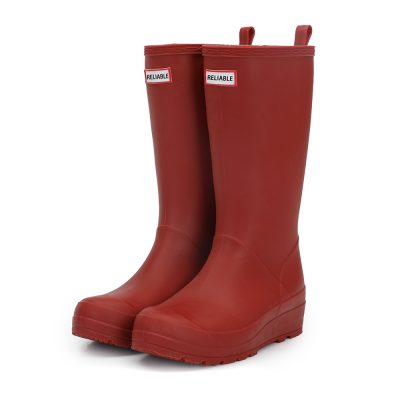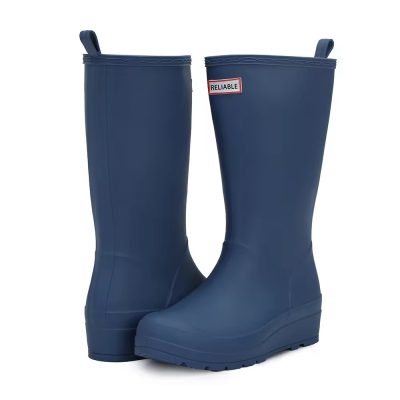In various industries, workplace safety is paramount. Especially in environments where wet or slippery conditions are prevalent, such as construction sites, farms, and industrial facilities, appropriate footwear becomes crucial. Work rain boots, designed to withstand water, mud, and other hazards, play a significant role in ensuring the safety and well-being of workers.
1. Protection Against Environmental Hazards
Work rain boots provide a barrier between the feet and various environmental hazards. Whether it’s heavy rainfall, standing water, or muddy terrain, these boots keep the wearer’s feet dry and protected. This not only enhances comfort but also minimizes the risk of injuries and infections caused by exposure to moisture and contaminants.
2. Slip Resistance
Slips and falls are among the most common workplace accidents, often resulting in injuries ranging from minor bruises to severe fractures. Work rain boots are typically equipped with slip-resistant outsoles, designed to provide maximum traction on wet and slippery surfaces. By reducing the likelihood of slips and falls, these boots contribute significantly to overall workplace safety.
3. Durability and Longevity
Unlike regular footwear, work rain boots are built to withstand harsh conditions and heavy use. Constructed from durable materials such as rubber or PVC, these boots are resistant to abrasion, punctures, and chemical exposure. Additionally, many models feature reinforced toe caps and shanks for added protection and support, ensuring long-term durability and reliability.
4. Comfort and Ergonomics
Comfort is essential for productivity and morale in any work environment. Work rain boots, despite their robust construction, are designed with comfort in mind. Features such as cushioned insoles, adjustable straps, and ergonomic designs ensure a snug and comfortable fit, even during extended periods of wear. This allows workers to focus on their tasks without discomfort or distraction.
5. Compliance with Safety Standards
In many industries, compliance with safety regulations and standards is mandatory. Work rain boots that meet or exceed these standards provide employers with peace of mind, knowing that their workers are adequately protected. By investing in quality footwear that adheres to industry-specific safety requirements, companies demonstrate their commitment to employee well-being and regulatory compliance.
Conclusion
Work rain boots are an essential component of workplace safety, particularly in environments where wet or slippery conditions pose a risk. By providing protection against environmental hazards, slip resistance, durability, comfort, and compliance with safety standards, these boots play a crucial role in safeguarding the health and safety of workers across various industries.















